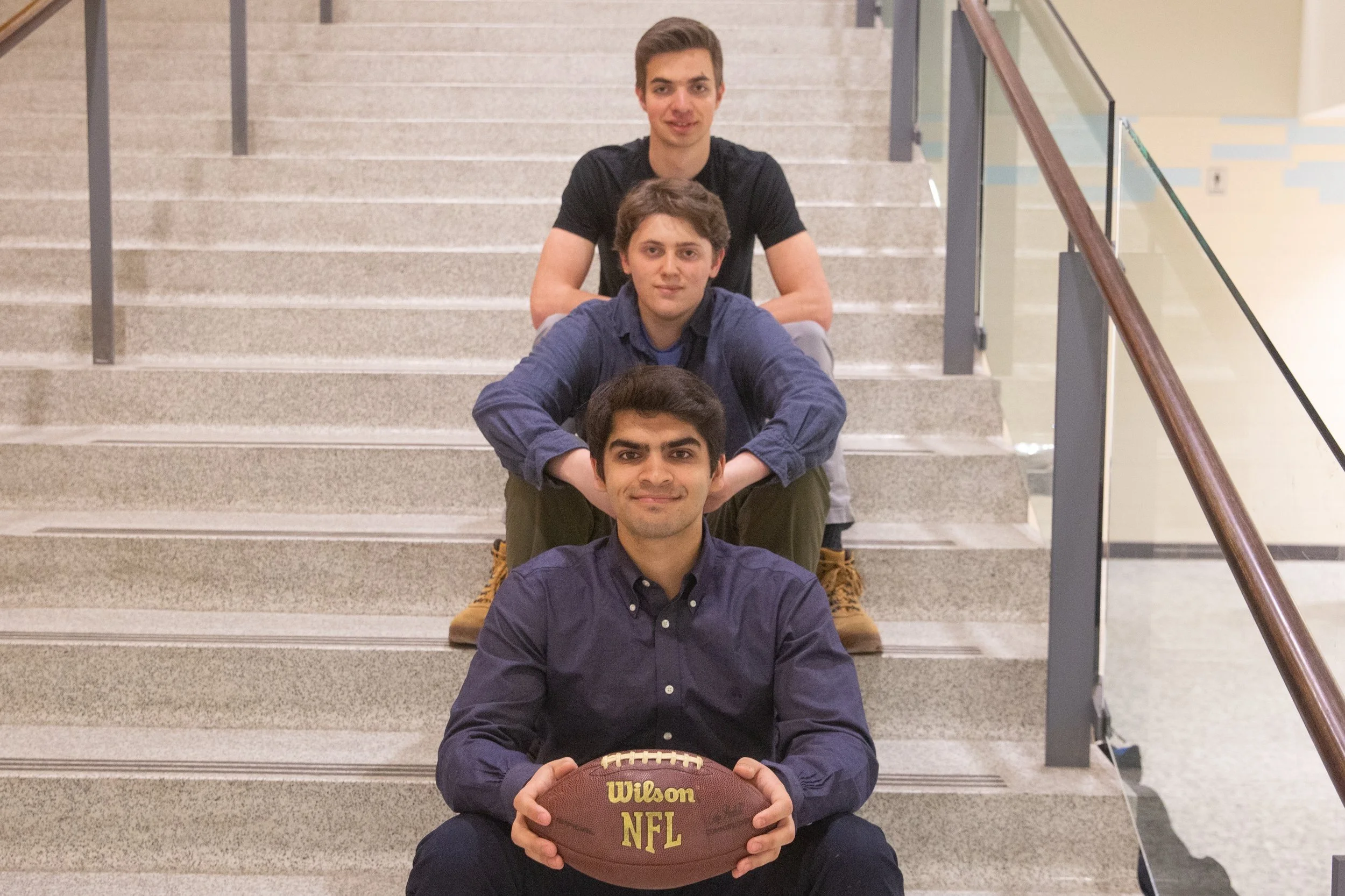Alex Mariakakis has been awarded a $70K Seed Grant from TRANSFORM HF, an Institutional Strategic Initiative at the University of Toronto.
Three takeaways from Waabi CEO Raquel Urtasun’s entrepreneurial journey
Computer science alumna co-develops equity-focused therapy platform featuring AI avatars
U of T researchers advancing telescope technology for next-generation ground-based observations
‘There’s a very large group of women who have your back’: computer science mentorship event connects female students and faculty
U of T students score win at NFL’s Big Data Bowl
Global News: U of T AI pioneers highlighted as key players in industry innovation
Some of the top innovators and developments in artificial intelligence have emerged from Canada in recent years, writes Global News, citing the contributions of U of T Department of Computer Science faculty and alumni.
The feature spotlights the work of University of Toronto luminary Geoffrey Hinton alongside other ‘godfathers of deep learning,’ Yoshua Bengio and Yann LeCun.
Tracing the genesis of modern advancements in AI, Global News highlights the seminal roles Hinton’s former students and alumni have played in the current AI boom, including Alex Krizhevsky and Ilya Sutskever, who is chief science officer and co-founder of OpenAI.
“I think over the next many years when people write books about the history of neural networks, which will be the history of AI, there will be huge sections dedicated to the people in Canada and what they were doing,” alumnus Nick Frosst told Global News.
Frosst is the co-founder of Toronto-based natural language processing startup Cohere, alongside fellow alumnus Aidan Gomez and Ivan Zhang, a former U of T computer science student.
Frosst points out heading to Silicon Valley isn’t necessarily the only option for those aspiring to a career in tech.
“I think that dream is less enticing to students as the years go on,” he said. “In part, it’s because Canada is getting better. There’s more opportunity here, there’s more companies, wages are going up — it’s a better place to be a developer,” Frosst told the outlet.
Read more at Global News.
Sloan Research Fellowships awarded to Jimmy Ba and Sushant Sachdeva
U of T students land in finals of the NFL’s Big Data Bowl with improved model of ‘pocket pressure’
Researchers use AI-powered database to design potential cancer drug in 30 days
University of Toronto scientists use machine learning to fast-track drug formulation development
Sujay Nagaraj awarded 2022 Vanier Canada Graduate Scholarship
‘We had to rethink how we were teaching the class’: CS faculty reflect on a decade of MOOCs at U of T
U of T computer scientists recognized for outstanding AI research at NeurIPS 2022
Waabi’s self-driving technology set to be road-tested, Raquel Urtasun tells Globe and Mail, Forbes
The University of Toronto’s Raquel Urtasun, a leading expert in machine learning and computer vision, is taking her startup’s self-driving technology for long-haul trucks out for a spin, with several autonomous vehicles ready to hit the road in the United States, according to reports.
The CEO and founder of Waabi told the Globe and Mail that a handful of trucks are “ready to be deployed” with human drivers and engineers on-board for safety. In Forbes magazine, Urtasun – a professor of computer science in the Faculty of Arts & Science and faculty member at the Vector Institute for Artificial Intelligence – said that Waabi will train the self-driving system to navigate any number of virtual scenarios using a simulator that harnesses the full power of AI.
She added that the approach gives Waabi an advantage over bigger competitors since it’s more efficient – and effective – than relying on real-world testing.
“Because we can do everything on the simulator we are already ready with a generation that is much more advanced,” Urtasun told the magazine.
Waabi emerged from stealth mode in June 2021 after raising more than $100 million in funding from Silicon Valley giants such as Khosla Ventures and Uber, as well as AI luminaries including U of T's Geoffrey Hinton, a University Professor Emeritus and Sanja Fidler, an associate professor of computer science.
Read more in the Globe and Mail
Read more in Forbes
Originally published on U of T News.


















